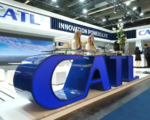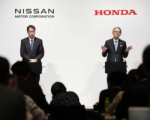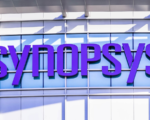European Battery Hopes Depend on Chinese Partnerships Post-Northvolt Collapse

The collapse of Northvolt has not entirely derailed Europe’s ambitions to develop its own electric vehicle (EV) battery industry, but the continent’s progress now increasingly relies on Chinese investment and expertise.
Slovakian startup InoBat exemplifies this shift. The company faced funding challenges until Gotion, China’s fifth-largest battery maker, acquired a 25% stake and entered a joint venture with InoBat to build gigafactories in Europe. On Friday, InoBat announced €100 million ($104 million) in Series C funding, pushing its total capital raised to over €400 million. This development, coming shortly after Northvolt’s financial troubles, signals that European EV battery projects can still attract investors—albeit often with significant Chinese backing.
Executives and analysts suggest that future European battery ventures are likely to involve joint ventures with Chinese firms, mirroring the Gotion-InoBat partnership and a recent agreement between Stellantis and CATL. According to Lacie Midgely, a research analyst at Panmure Liberum, institutional investors now seek strategic partnerships before committing to funding.
China’s dominance in battery production is evident in companies like Gotion, which boasted a production capacity of 150 gigawatt hours (GWh) in 2023, enough to power up to 2 million cars. By 2025, this figure is expected to reach 270 GWh, far outpacing Europe’s current capabilities.
Partnerships and Progress
The Gotion-InoBat Batteries (GIB) joint venture has proven advantageous for InoBat, securing investor confidence by leveraging Gotion’s experience and scale. Vikram Gourineni, executive director at Indian battery maker Amara Raja—a key investor in InoBat’s latest funding round—highlighted that automakers prefer proven large-scale capabilities to mitigate risks in their EV programs.
InoBat operates a pilot production line in Voderady, Slovakia, and is building a high-performance 4 GWh gigafactory. The company also plans a $1.2 billion, 20 GWh facility in Surany, Slovakia, slated to supply batteries for 200,000 EVs annually starting in 2027. Volkswagen, which owns a 24.45% stake in Gotion, is a major partner, with Slovak government aid contributing €214 million to the project.
GIB’s strategy focuses on low-cost, high-volume production, leveraging Slovakia’s automotive manufacturing hub and proximity to major German, Czech, and Hungarian markets.
Challenges for Independent European Projects
Northvolt’s failure to compete with Chinese giants like BYD and CATL has cast doubt on other independent European battery startups. In 2024, at least eight companies postponed or canceled European EV battery projects, while the continent’s projected battery pipeline capacity through 2030 fell by 176 GWh, according to Benchmark Minerals.
However, some projects show promise. French startup Verkor, backed by Renault, has raised €3 billion to build a 16 GWh gigafactory in Dunkirk, expected to produce batteries for 300,000 EVs annually by 2028. Meanwhile, UK-based Ilika focuses on licensing its solid-state battery technology rather than building gigafactories, catering to niche markets such as medical devices and potentially EVs.
The Role of Chinese Expertise
European startups increasingly rely on Chinese partners to navigate technical and financial hurdles. Gotion’s collaboration has accelerated InoBat’s development, enabling faster problem-solving and cost management. CEO Marian Bocek noted that InoBat’s high-performance batteries are undergoing testing by premium automakers like Ferrari, while its GIB joint venture ensures large-scale production.
Analysts like Andy Leyland of SC Insights suggest that automakers and investors prefer de-risking production by relying on the expertise of established Asian battery manufacturers. “The Chinese have mastered low-cost mass production, so if you want batteries made, most likely Asian battery makers will make them,” Leyland said.
Despite these challenges, Europe’s battery ambitions remain alive, albeit increasingly intertwined with Chinese partnerships that provide the scale and expertise necessary to meet growing EV demand.





















